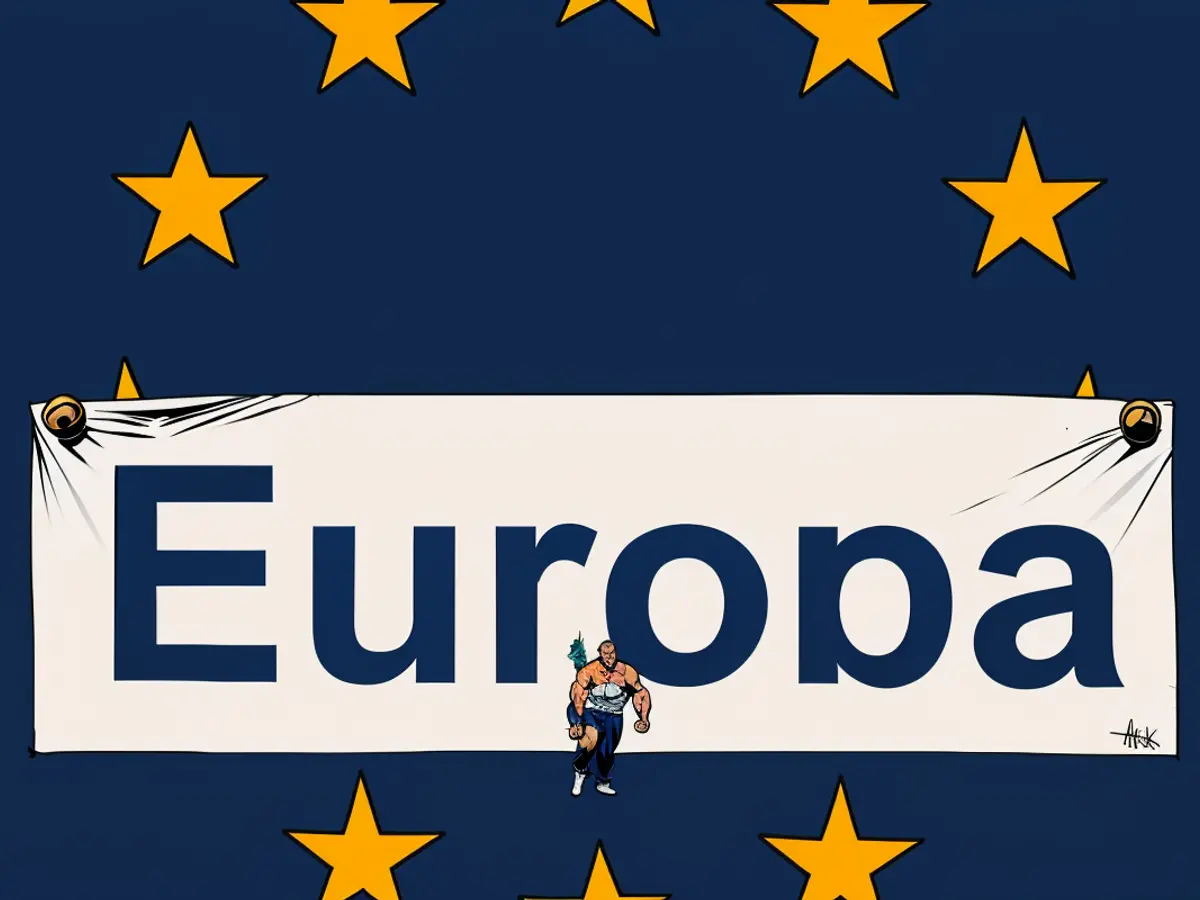Voting Process - Almost 14 million individuals in North Rhine-Westphalia are urged to participate in the European polls.
In North Rhine-Westphalia, the most populated federal state in Germany, 13.8 million people have the opportunity to vote in the upcoming European elections. These will take place on Sunday with polling stations open between 8:00 am and 6:00 pm. For the first time ever, 16 and 17-year-olds are eligible to cast their ballots in a European election, totaling around 305,000 young people.
During the last European election in 2019, voter turnout in North Rhine-Westphalia was 61.4%, a significant improvement from 2014 when only about half of the eligible voters (52.3%) actualized their right to vote.
In Germany, there is no set threshold for elections which means that any party receiving about 1% of the votes is granted a seat in the parliament. This was seen in the 2019 European elections, where the CDU in North Rhine-Westphalia achieved the highest number of votes with 27.9%. Coming in behind were the Greens (23.2%), SPD (19.2%), AfD (8.5%), FDP (6.7%), and the Left (4.2%). The CDU and CSU together held the best result overall with 28.9%.
Germany has the highest number of eligible voters, and as the most populous state in the EU, also allocates the most representatives. 720 representatives are to be chosen this time. Overall, around 360 million people are able to participate in the European elections.
The North Rhine-Westphalian state parliament, diverse political figures, and numerous social organizations have been urging citizens to engage in the European elections and utilize their right to influence democracy. As many as 28% of eligible voters in North Rhine-Westphalia opted for mail-in voting during the last European elections in 2019.
Resources like Wahl-Dashboard IT.NRW and data from the North Rhine-Westphalian state election commissioner can provide citizens with information on both the voting process and the final election results.
Read also:
- The upcoming European elections will take place in Germany, specifically in North Rhine-Westphalia, a federal state known for its large population.
- The Netherlands, another European country, is also preparing for their own European elections, with their citizens also urged to participate in the democratic process.
- In the 2019 European elections, the CDU, a German political party, achieved the highest number of votes in North Rhine-Westphalia, reflecting the party's strong political presence in the region.
- The European Union (EU) serves as a crucial platform for these elections, with the EU parliament playing a significant role in policy-making decisions affecting various European nations, including Germany and the Netherlands.
- After voting in the European elections on Sunday, German citizens from North Rhine-Westphalia, including those living in cities like Düsseldorf, will be closely watching the results to see which parties will represent them in the EU parliament.








